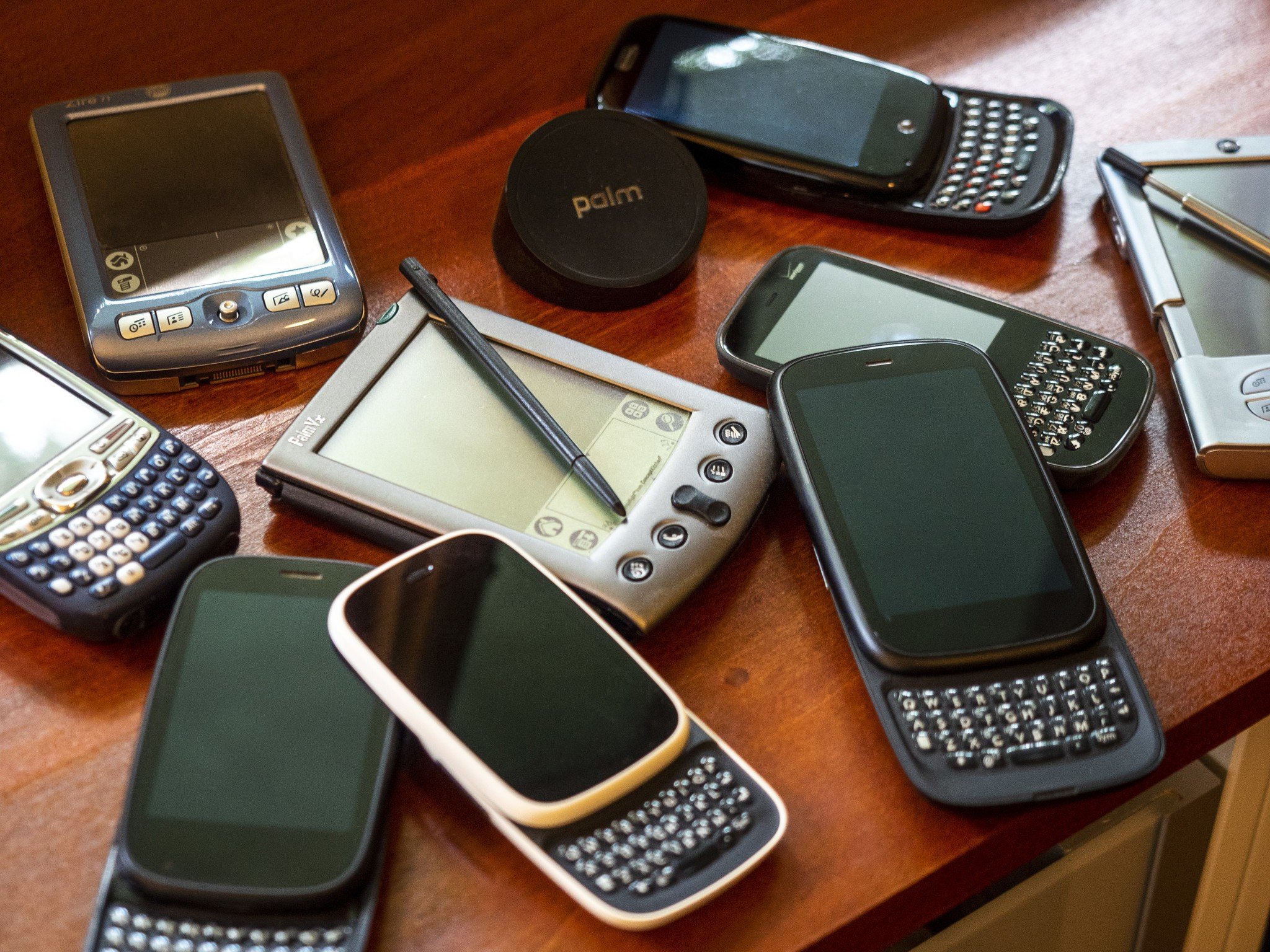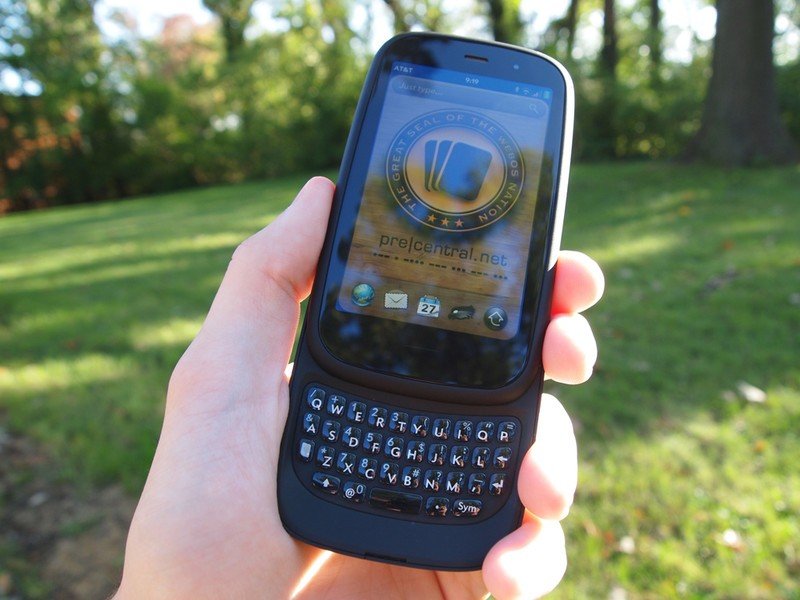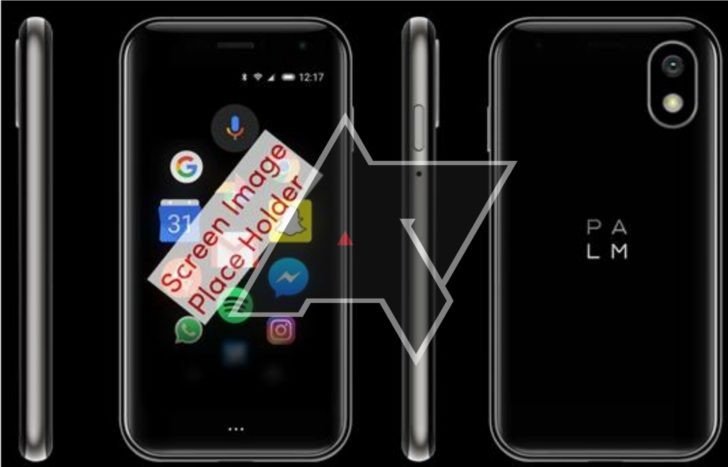Palm is coming back in the most disappointing way possible

There was a phrase that exemplified Palm devices back in the day: the Zen of Palm. Get the hardware and software out of the way to make everyday tasks quick and simple. I think about it every time I get frustrated trying to edit an alarm on an iPhone.
TCL's held the defunct Palm brand for several years, but to what end? The leak of a new Palm phone was a surprise in more ways than one.
First, some history...
Palm holds a special place in my heart, and for many old mobile tech nerds. Palm OS was the basis on which Mobile Nations was founded nearly two decades ago.
My introduction to Palm came in 1999 when my father got a Palm Vx PDA. I had Palm Treo smartphones years before the iPhone or Android and immediately hopped on the Palm webOS bandwagon in 2009. It was a graceful and intuitive interpretation of the modern smartphone that made early iPhones and Android seem clunky.
Multitasking app cards? Gesture interface navigation? Web-based apps?webOS, all of it.
The multitasking cards and swipe gestures of Android 9.0 Pie and the iPhone X were established a decade ago by webOS. Web tech app platforms like Proton and PWA are a concept that webOS pioneered. I'm delighted that the spirit of webOS lives on across mobile tech.
Palm and BlackBerry were overwhelmed by iOS and Android. BlackBerry made some tremendously bad bets, but survives today making security software and services, and licenses their brand (today's BlackBerry phones are made by TCL and Optiemus), Palm's story is sadder. webOS was a tech media darling, even though the Pre hardware was fragile and anemic. It launched on 3rd-place Sprint and people still lined up to buy it on day one.
Drowning in unsold inventory after Verizon scuttled a marketing deal in favor of Motorola's Droid, Palm was saved by a $1.2 billion acquisition by HP. A promise of heavy investment bore fruit a year later with the TouchPad tablet, the tiny Veer smartphone, and the Pre3 — the phone fans were waiting for. There were even plans to integrate webOS onto millions of HP PCs.
Be an expert in 5 minutes
Get the latest news from Android Central, your trusted companion in the world of Android

But... a change in HP's leadership sapped support for webOS. The new CEO, Léo Apotheker, wasn't wrong that building webOS into a competitive and profitable platform would take much more investment than the already profitable HP Enterprise business. The TouchPad wasn't a huge seller at launch and Apotheker quickly shuttered the webOS operation.
tl;dr: webOS was great, Verizon screwed Palm, HP saved Palm, HP screwed Palm and sold it for scrap.
It was one of the dumbest moves in tech history, right up there with Yahoo's failure to buy Google, or Kodak burying their digital photography tech to protect their film business. The young smartphone market could've supported a third ecosystem, but HP cared more about IT services.
HP worked to open source webOS, and LG bought the remaining webOS engineers and assets. webOS lives on today as excellent LG smart TV software.
HP's surprise 2014 sale of the Palm brand to TCL was a hint of what was to come. TCL was contracted to build BlackBerry's Android phones, then flipped the arrangement and licensed the BlackBerry brand.
Resurrection
TCL's teased Palm occasionally through the years, and in early 2018 committed to new Palm devices. It was welcome news for Palm fans — TCL has manufacturing expertise and scale, global carrier partnerships, and has made excellent phones like the Alcatel Idol 4 and BlackBerry Key2.
Good brands are hard. Established brands with positive history are harder. There's a reason TCL spent millions for rights to the BlackBerry name; same with HMD Global for the Nokia name. Even trusted old Kodak is still licensed and slapped on all manner of garbage.
BlackBerry and Nokia got well-deserved second acts. According to the latest leaks, TCL is giving Palm the opposite. A new Palm phone is coming to Verizon — it's a tiny thing running customized Android on bare-bones specs. Very little about it evokes the Palm that I knew and loved. It looks like a shrunken iPhone X running Apple Watch software.

There's a market for small phones, for simple phones, and for cheap phones. None of that's offensive; today you can make a phone that is all those things and doesn't suck.
Palm's phones packed state-of-the-art software and hardware. This "Pepito" has a pitiful processor and memory with barely adequate storage behind a tiny display. Android 8.1 Oreo isn't bad, but the glimpse of the Pepito's simplified Android interface is disappointing. Google and Apple have finally caught up to and surpassed most webOS features with Android 9 and iOS 12. I'm fine with that — webOS doesn't need to return.
What TCL is doing with the Palm brand is the opposite of what most fans would want. An underpowered mini-phone is on few wishlists. Are today's phones big — perhaps too big? Sure. But a 3.3-inch 720p LCD display with a pathetic 800mAh battery is not the answer.
The window for a high-end Palm resurrection may have passed, as crushing as that realization may be.
All of Palm's webOS phones were compact, but they didn't lack oomph. TCL's Pepito offers a screen that's barely bigger (3.3 inches) than the decade-old Pre (3.1 inches) — but the Pre at least had a slide-out physical keyboard.
I'll give TCL credit: they're doing something different. The Pepito isn't yet another big-screen slab Android phone. Anybody can do that — TCL does that with their Alcatel brand, so does Samsung, LG, OnePlus, Google, and everybody else. The market for keyboard phones is small and TCL's BlackBerry will sell you one if that's your thing. There's even precedent for small Palm phones — the HP Veer was adorably tiny in 2011 and is even more so today.
From daydream to nightmare
During the launch of another enormous Samsung Galaxy Note, I thought about TCL and Palm. They could use their BlackBerry keyboard expertise to make a modern slider with the comfortable organic curves of a Palm phone. Running Android Pie, it'd be basically a modern descendent of the Pre. Throw in a high-end processor and quality cameras and you'd have one heck of a phone.
The Pepito crushed that dream. Hard.
I know the market for my dream phone is small, as is the cadre of loyal Palm fans. The window for a high-end Palm resurrection may have passed — OnePlus filled that void with smartly-designed phones with top-shelf specs and a minimalist approach to Android.
TCL's new Palm is not for Palm's old fans. It's not trying in vain for a sliver of the high-end market. It's not even an attempt to recapture the Zen of Palm. It's a brand that TCL bought without a plan, so they're putting it on a phone for Verizon customers that have complained that today's phones are too expensive, too big, and too complicated. It's an Android-powered Jitterbug.
The Palm I loved is gone. The Palm I want will never be. The Palm we're getting is a massive disappointment.
Derek Kessler is Special Projects Manager for Mobile Nations. He's been writing about tech since 2009, has far more phones than is considered humane, still carries a torch for Palm (the old one), and got a Tesla because it was the biggest gadget he could find. You can follow him on Twitter at @derekakessler.

